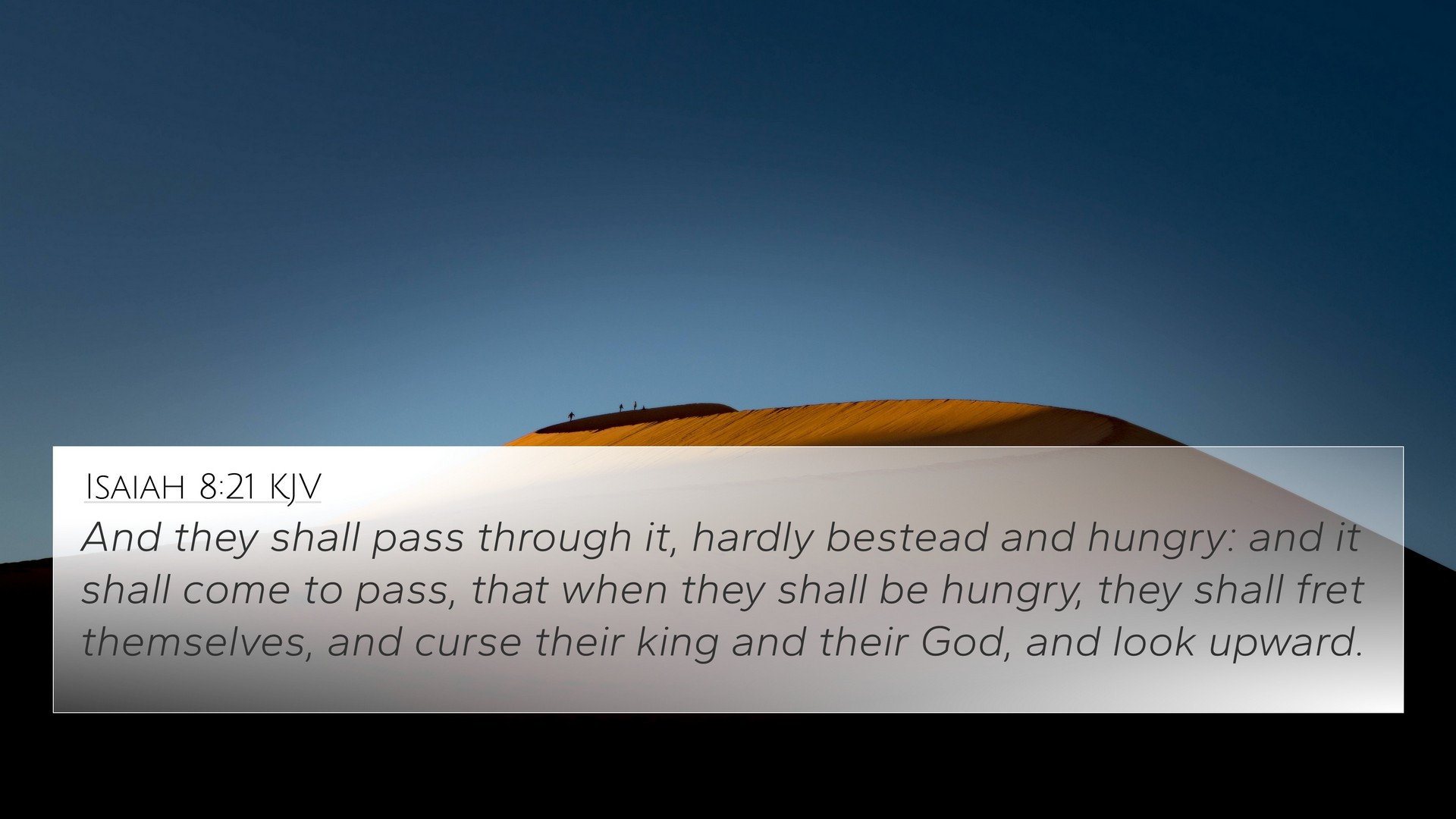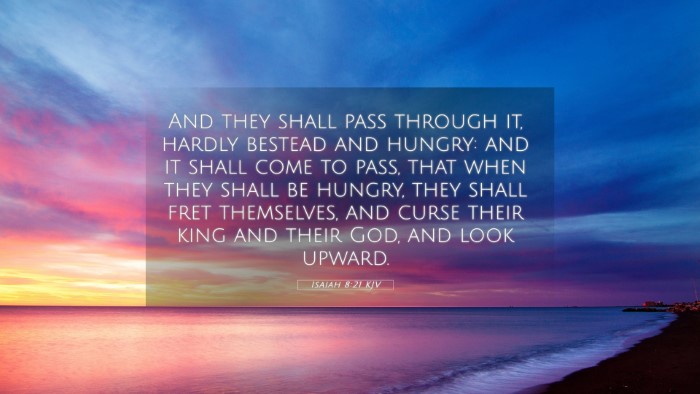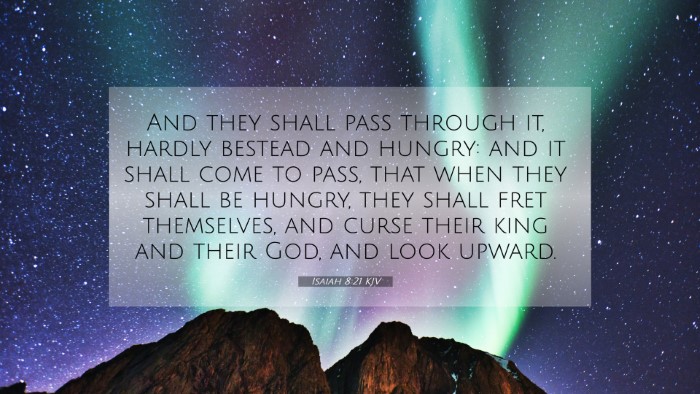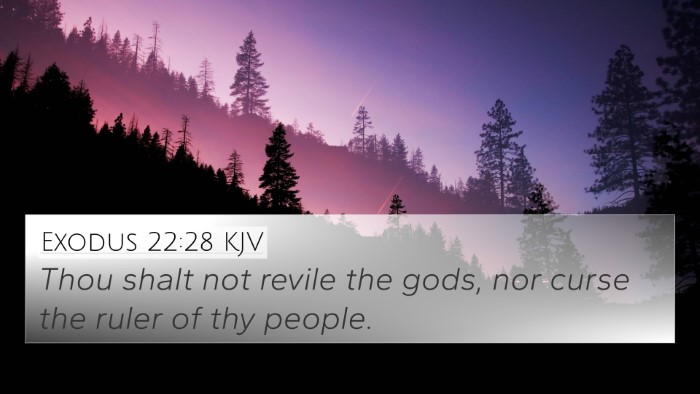This section features a detailed cross-reference designed to enrich your understanding of the Scriptures.
Below, you will find carefully selected verses that echo the themes and teachings related to Isaiah 8:21 KJV. Click on any image to explore detailed analyses of related Bible verses and uncover deeper theological insights.
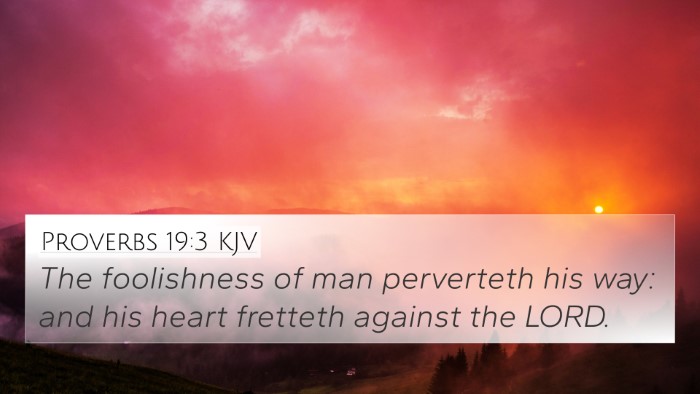 Proverbs 19:3 (KJV) »
Proverbs 19:3 (KJV) »
The foolishness of man perverteth his way: and his heart fretteth against the LORD.
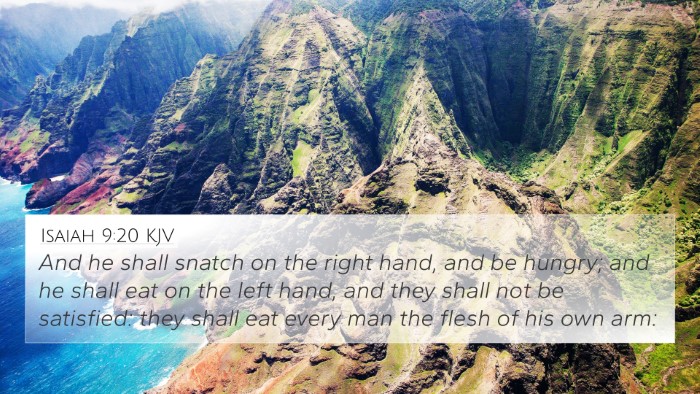 Isaiah 9:20 (KJV) »
Isaiah 9:20 (KJV) »
And he shall snatch on the right hand, and be hungry; and he shall eat on the left hand, and they shall not be satisfied: they shall eat every man the flesh of his own arm:
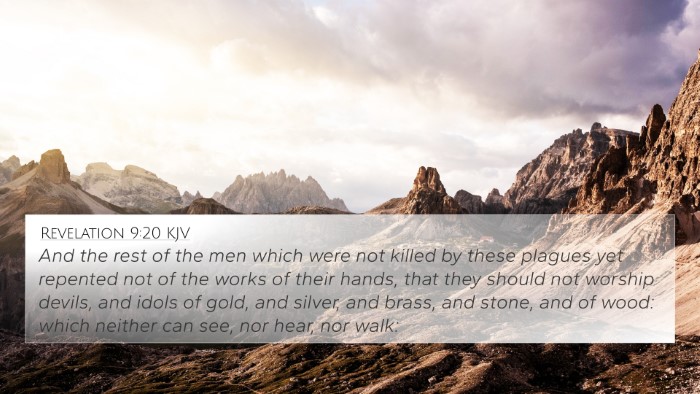 Revelation 9:20 (KJV) »
Revelation 9:20 (KJV) »
And the rest of the men which were not killed by these plagues yet repented not of the works of their hands, that they should not worship devils, and idols of gold, and silver, and brass, and stone, and of wood: which neither can see, nor hear, nor walk:
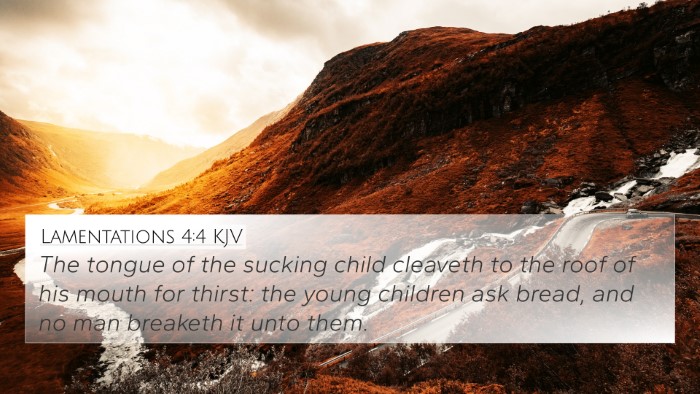 Lamentations 4:4 (KJV) »
Lamentations 4:4 (KJV) »
The tongue of the sucking child cleaveth to the roof of his mouth for thirst: the young children ask bread, and no man breaketh it unto them.
 Lamentations 4:9 (KJV) »
Lamentations 4:9 (KJV) »
They that be slain with the sword are better than they that be slain with hunger: for these pine away, stricken through for want of the fruits of the field.
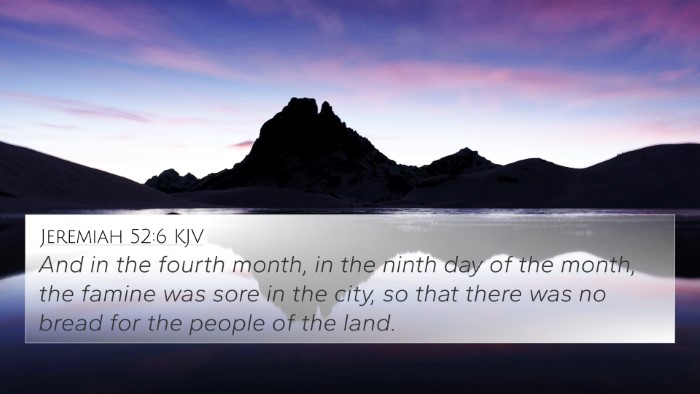 Jeremiah 52:6 (KJV) »
Jeremiah 52:6 (KJV) »
And in the fourth month, in the ninth day of the month, the famine was sore in the city, so that there was no bread for the people of the land.
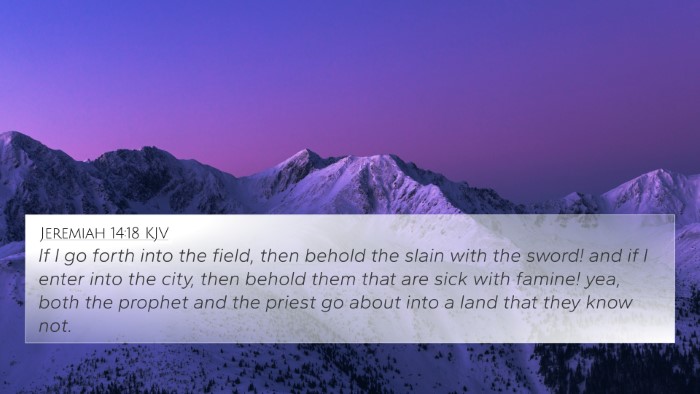 Jeremiah 14:18 (KJV) »
Jeremiah 14:18 (KJV) »
If I go forth into the field, then behold the slain with the sword! and if I enter into the city, then behold them that are sick with famine! yea, both the prophet and the priest go about into a land that they know not.
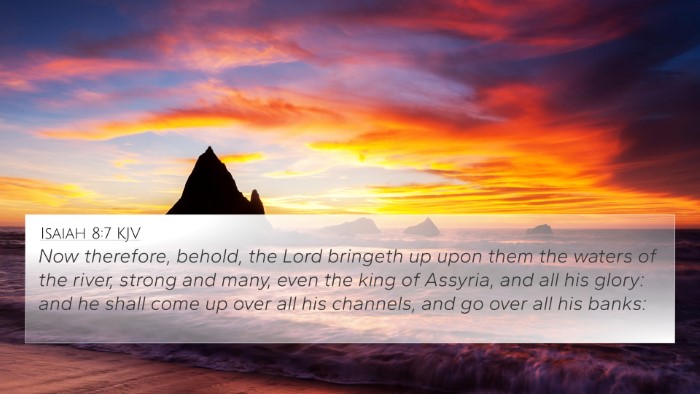 Isaiah 8:7 (KJV) »
Isaiah 8:7 (KJV) »
Now therefore, behold, the Lord bringeth up upon them the waters of the river, strong and many, even the king of Assyria, and all his glory: and he shall come up over all his channels, and go over all his banks:
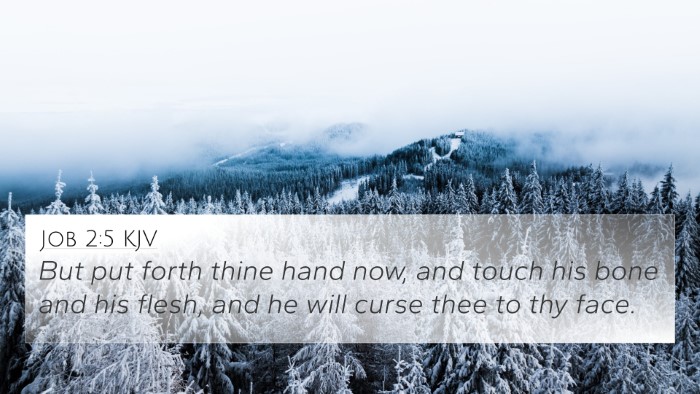 Job 2:5 (KJV) »
Job 2:5 (KJV) »
But put forth thine hand now, and touch his bone and his flesh, and he will curse thee to thy face.
 Job 2:9 (KJV) »
Job 2:9 (KJV) »
Then said his wife unto him, Dost thou still retain thine integrity? curse God, and die.
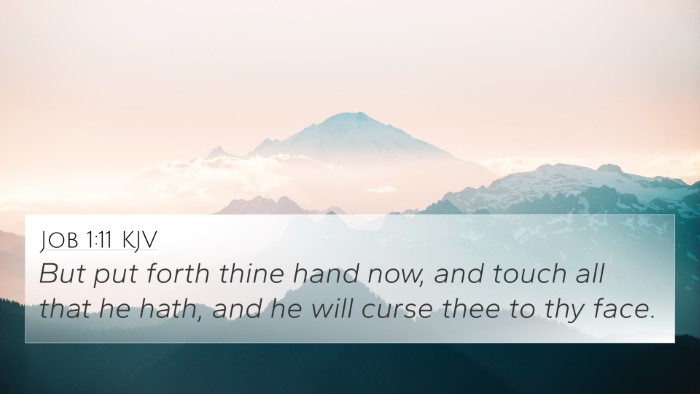 Job 1:11 (KJV) »
Job 1:11 (KJV) »
But put forth thine hand now, and touch all that he hath, and he will curse thee to thy face.
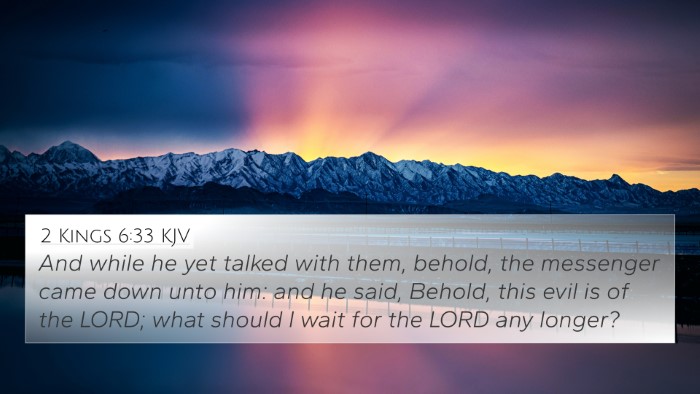 2 Kings 6:33 (KJV) »
2 Kings 6:33 (KJV) »
And while he yet talked with them, behold, the messenger came down unto him: and he said, Behold, this evil is of the LORD; what should I wait for the LORD any longer?
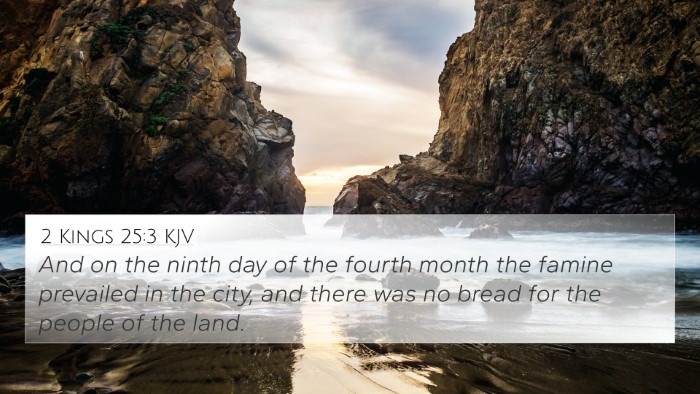 2 Kings 25:3 (KJV) »
2 Kings 25:3 (KJV) »
And on the ninth day of the fourth month the famine prevailed in the city, and there was no bread for the people of the land.
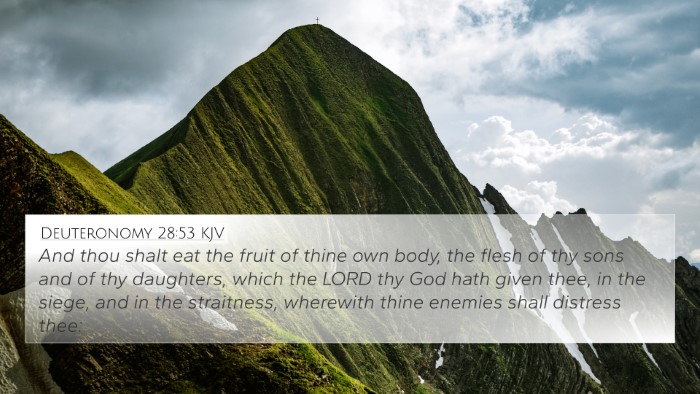 Deuteronomy 28:53 (KJV) »
Deuteronomy 28:53 (KJV) »
And thou shalt eat the fruit of thine own body, the flesh of thy sons and of thy daughters, which the LORD thy God hath given thee, in the siege, and in the straitness, wherewith thine enemies shall distress thee:
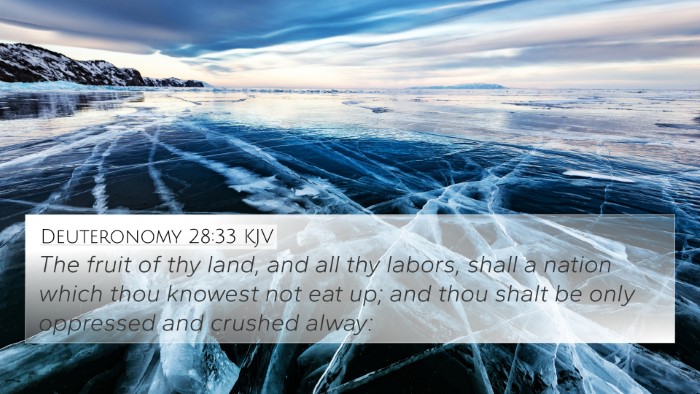 Deuteronomy 28:33 (KJV) »
Deuteronomy 28:33 (KJV) »
The fruit of thy land, and all thy labors, shall a nation which thou knowest not eat up; and thou shalt be only oppressed and crushed alway:
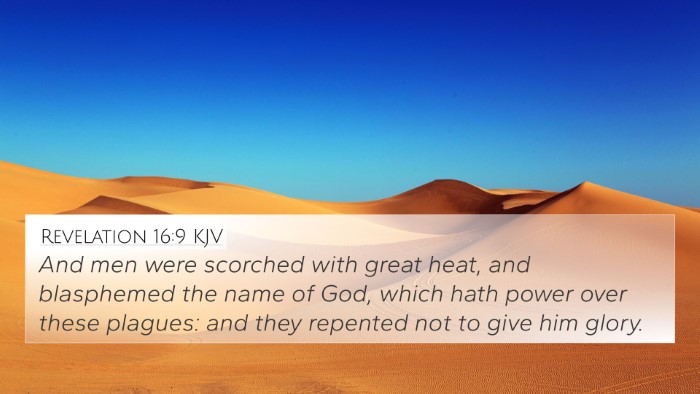 Revelation 16:9 (KJV) »
Revelation 16:9 (KJV) »
And men were scorched with great heat, and blasphemed the name of God, which hath power over these plagues: and they repented not to give him glory.
